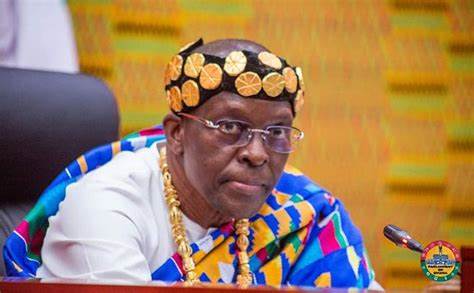The Speaker of Parliament, Alban Bagbin has expressed significant concerns regarding President Akufo-Addo’s decision to reject the transmission of the proposed anti-gay legislation.
The Office of the President in a letter dated March 18, 2024, requested Parliament to refrain from sending the anti-gay bill to President Akufo-Addo for his assent.
The decision, according to Nana Bediatuo Asante, the Secretary to the President, stemmed from the acknowledgement of two pending applications for an order of interlocutory injunction before the Supreme Court.
The applications sought to prevent Parliament from sending the Bill to the President and to restrain the President from signifying his assent to the Bill, pending the final determination of the matter.
Responding to the letter, the Speaker emphatically stated that the President’s directive does not only deviate from established democratic practices but also undermines the spirit of cooperative governance.
“The behaviour exhibited by the Presidency in refusing to accept the transmission of this bill not only deviates from established democratic practices but also undermines the spirit of cooperative governance and mutual respect for the arms of government. The President’s refusal to accept the transmission of the bill is, by all accounts, not supported by the constitutional and statutory provisions that guide our legislative process,” he asserted.
“This ongoing scenario poses a grave threat to our legislative authority and, by extension, the democratic principles we strive to uphold. The implications of such executive actions extend far beyond the immediate legislative items at hand. They erode the foundational checks and balances that our forebearers painstakingly established to ensure a vibrant and functioning democracy.”
He criticized the presidency for attempting to disregard the foundational principles enshrined in the 1992 Constitution.
The action by the presidency, he said if left unchecked risk setting dangerous precedents that threaten the integrity of institutions.
“This is a principle that forms the cornerstone of our political system. Such actions, if left unchecked, risk setting dangerous precedents that threaten the integrity and functionality of our democratic institutions.


